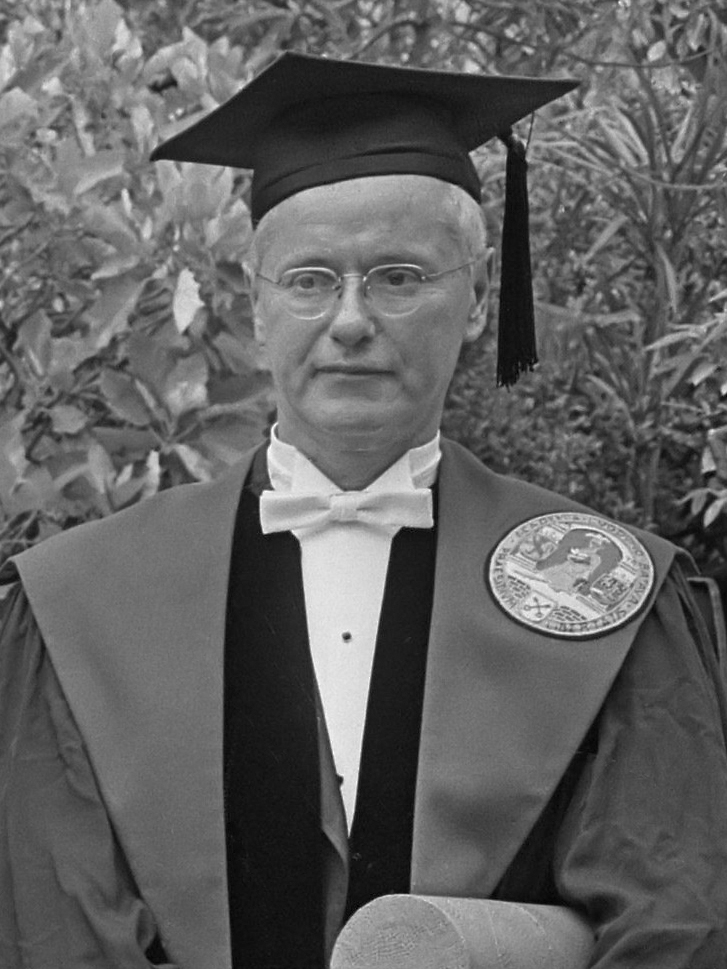“No man knows fully what has shaped his own thinking”
Fuente: Social Theory and Social Structure (1949), p. ix (1957 edition)
Robert King Merton, nacido Meyer Robert Schkolnick fue un sociólogo estadounidense. Es padre de Robert C. Merton laureado con el Premio en Ciencias Económicas en memoria de Alfred Nobel.
Padre de la teoría de las funciones manifiestas y latentes, y autor de obras como El análisis estructural en la Sociología , Merton es uno de los clásicos de la escuela estadounidense de esta disciplina. También fue importante su labor en el campo de la sociología de la Ciencia. Muchas frases acuñadas por él son hoy utilizadas diariamente, dentro y fuera de la sociología.
Wikipedia

“No man knows fully what has shaped his own thinking”
Fuente: Social Theory and Social Structure (1949), p. ix (1957 edition)
Fuente: Social Theory and Social Structure (1949), p. 477 (1968 Enlarged edition)
Contexto: The self-fulfilling prophecy is, in the beginning, a false definition of the situation evoking a new behaviour which makes the original false conception come "true". This specious validity of the self-fulfilling prophecy perpetuates a reign of error. For the prophet will cite the actual course of events as proof that he was right from the very beginning.
Fuente: Social Theory and Social Structure
Merton (1968) "The Matthew Effect In Science", In: Science Vol. 159, no. 3810 (5 January 1968), p. 56-63: On scientists, the Nobel Prizes, and the Matthew effect in scientific research.
Contexto: The role of outstanding scientists in influencing younger associates is repeatedly emphasized in the interviews with laureates. Almost invariably they lay great emphasis on the importance of problem-finding, not only problem-solving. They uniformly express the strong conviction that what matters most in their work is a developing sense of taste, of judgment, in acting setting upon problems that are of fundamental importance. And, typically, they report that they acquired this sense for the significant problem during their years of training in evocative environments. Reflecting on his years as a novice in the laboratory of a chemist of the first rank, one laureate reports that he "led me to look for important things, whenever possible, rather than work on endless detail or to work just to improve accuracy rather than making a basic new contribution."
Fuente: The Sociology of Knowledge, (1937), p. 503
Fuente: Social Theory and Social Structure (1949), p. 162 (1957 edition) as cited in: John H. Scanzoni (1970) Opportunity and the family. p. 55
“Scientific research is not conducted in a social vacuum.”
Fuente: Social structure and anomie (1938), p. 263 (1973 Edition)
Fuente: Social Theory and Social Structure (1949), p. 162 (1957 edition)
Fuente: The Sociology of Knowledge, (1937), p. 493
Merton (1938) "Science and the Social Order". In: Philosophy of Science Vol 5, nr 3, p. 326